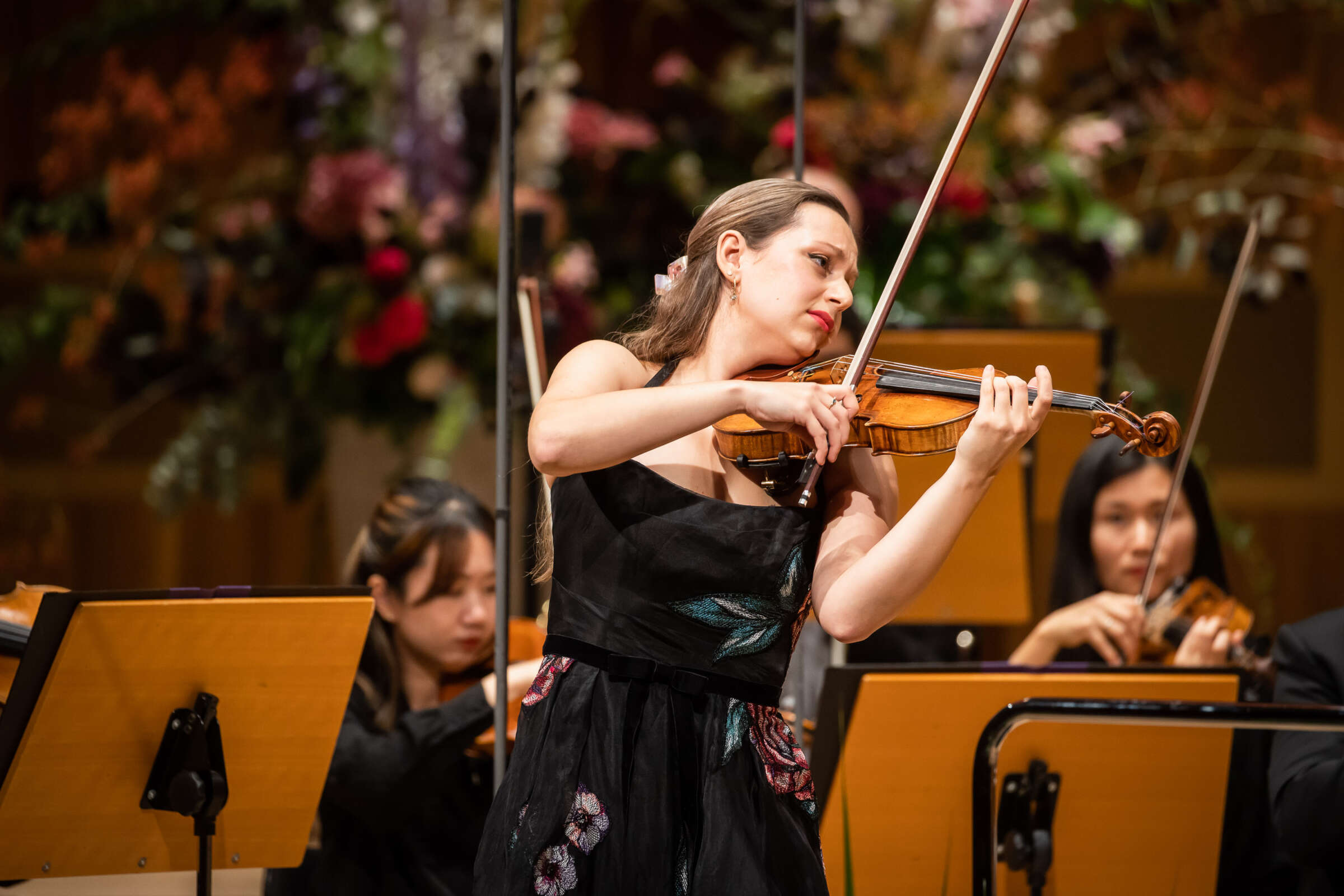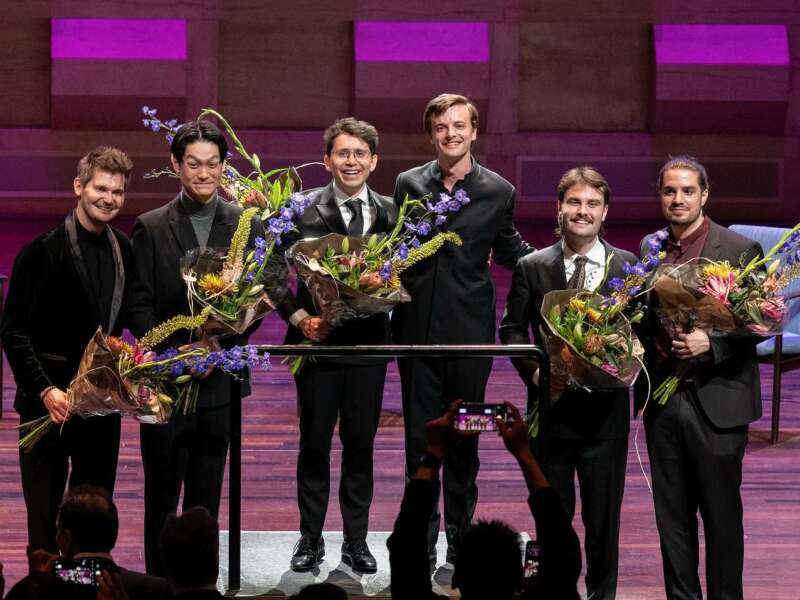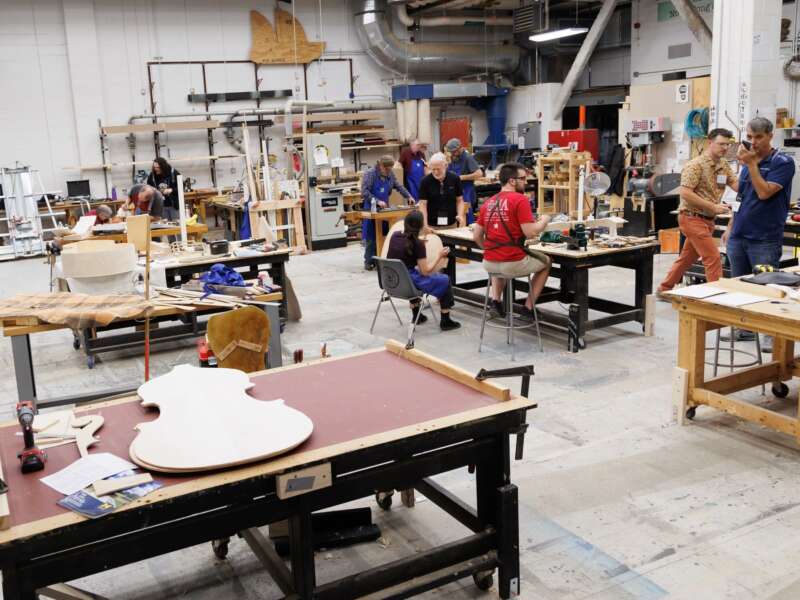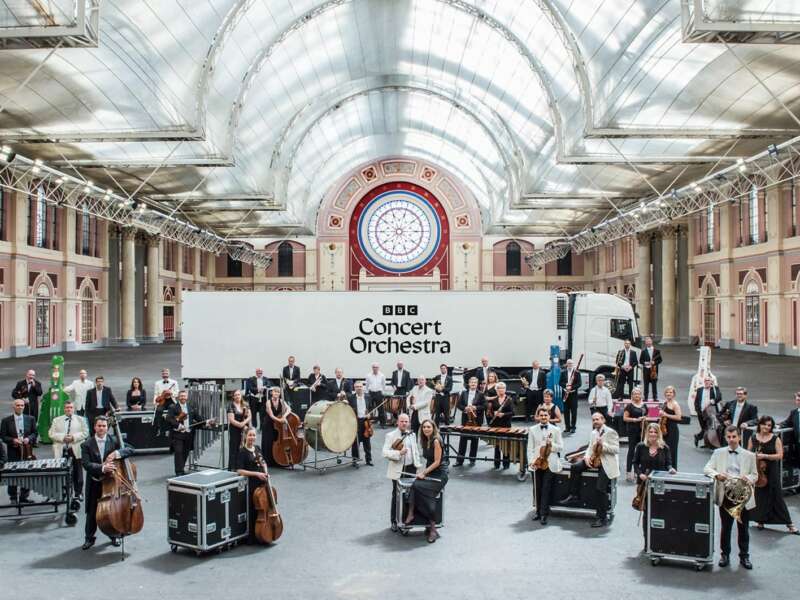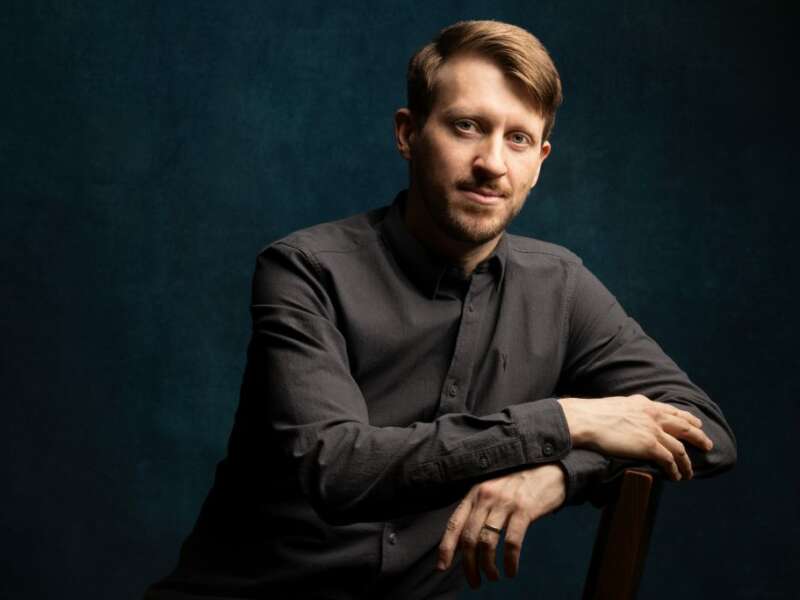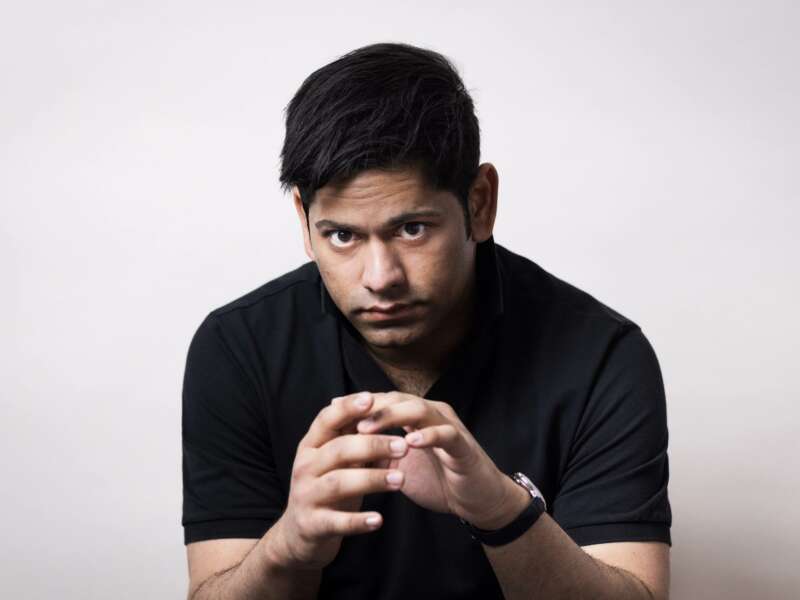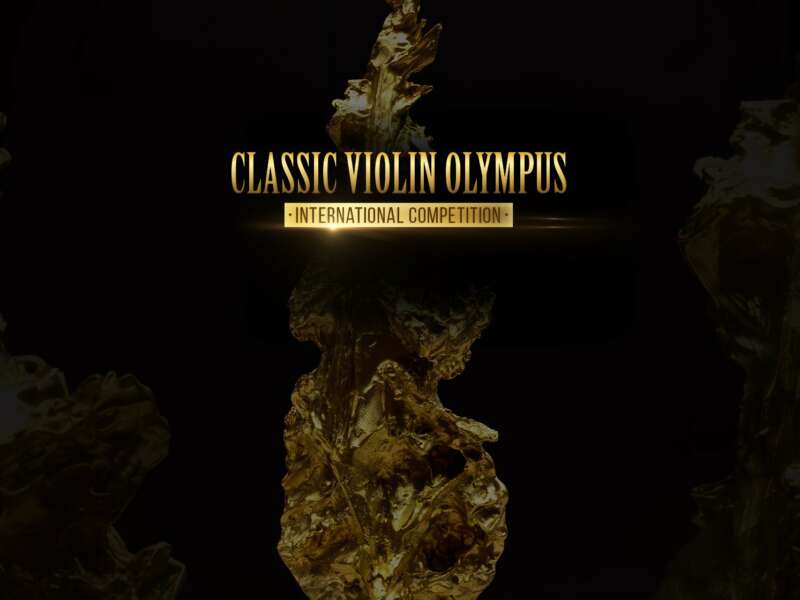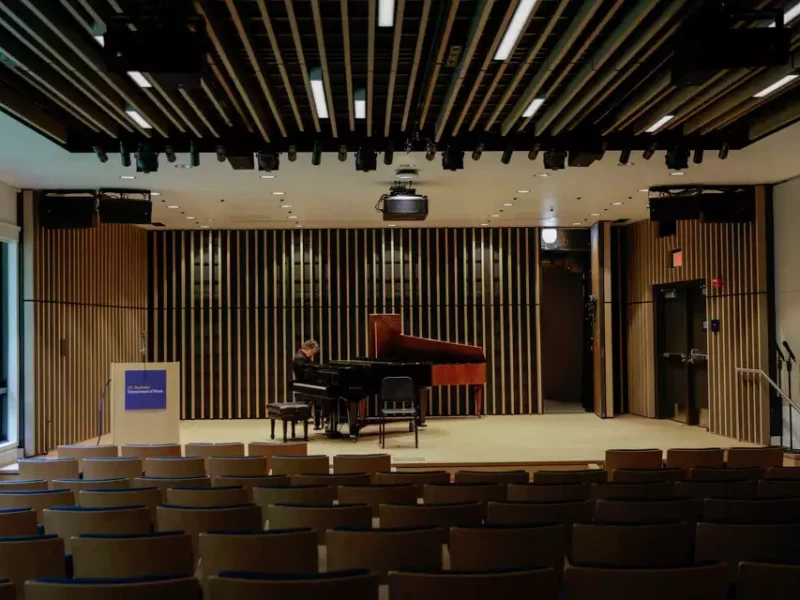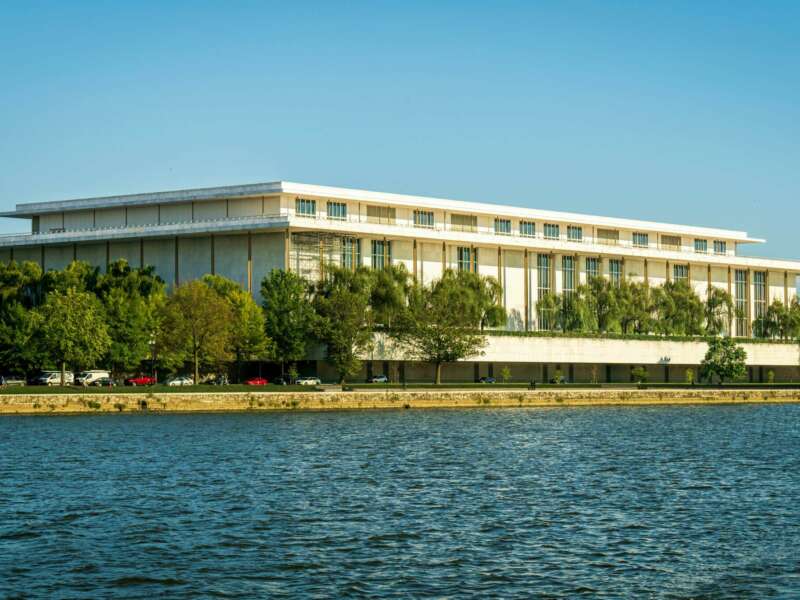Insights with Joseph Joachim Competition's Artistic Management Team
Tune in to The Violin Channel on September 16 and 28 to watch this year's competition
The twelfth edition of the Joseph Joachim Violin Competition will take place in Hannover, Germany between September 16 and 28, 2024. The competition is run by the Stiftung Niedersachsen and takes place every three years. The competition will be streamed LIVE on The Violin Channel.
We had the privilege of talking with the competition's artistic directors, Antje Weithaas and Oliver Wille, to learn more about the event.
Tell us about the Joseph Joachim International Violin Competition. What are the main goals of the competition?
Robert Schumann wrote: "Nur wo die Fertigkeit höheren Zwecken dient, hat sie Wert," which freely translates to "Only where skill serves higher purposes does it have value."
His words could serve as the motto of our competition!
The ongoing discussion about the meaning and future of such performance shows, and indeed about broader questions concerning musical life as a whole, are constantly occupying our thoughts. In shaping the competition, we have found our answer: we undoubtedly need good music, we want to promote artistic excellence together with our partners and we strive to enable musical encounters in Hanover where the ineffable becomes audible. This is what this major event, now organized for the 12th time by the Stiftung Niedersachsen, represents - and once again, we are privileged to take the artistic lead.
We are delighted to follow the careers of our latest finalists. Supported by our traditional partners and a fantastic organizational team, we proudly present our 2nd edition with enthusiasm.
Even new concert halls, orchestras, and festivals have joined us in realizing our vision of organizing a competition that will serve as a platform for future concert life. It is not only our discerning juries, composed of international musicians, who shape the course of the up to five competition performances, but also the organizers who decide on the various invitations to their concerts.
We are extremely grateful for this cooperation, as it gives us strength and confidence that participation in the Joseph Joachim Violin Competition will continue to be a milestone in a musician's career. We are certain that artistic relevance for musical life in the coming years will emanate from Hanover.
We are thrilled to meet individuals who wish to follow a unique path, who live music with a violin in their hands, who touch hearts, who communicate personal messages, who take us into their world, who make time stand still, who leave us in awe... all in the spirit of the great musician and violinist Joseph Joachim.
We are aware that the two weeks are extremely demanding for our participants, they are asked to present themselves in very different facets, even required to create their own thematic program in the semi-final and all of this presents an additional challenge. But this also allows us to get to know the young personalities even better and to discover, in Joachim´s words…
How has it evolved since the first edition in 1991?
The competition has always evolved and reflected the zeitgeist. Founded in 1991 through the initiative of Prof. Krzysztof Wegrzyn, then concertmaster of the Lower Saxony State Orchestra, together with the Stiftung Niedersachsen, it aimed to establish first-class, internationally-oriented promotion of excellence in Lower Saxony. Naturally, this endeavor has also significantly bolstered the city of Hanover and the state of Lower Saxony, while increasing the visibility of the Hanover University of Music, Drama, and Media. The emphasis on excellence was further reflected in the highly endowed prizes – for many years the Joseph Joachim Violin Competition was the world's most highly endowed violin competition.
The close connection with the large federal state of Lower Saxony has been evident since 1994 with the concert series "Zu Gast in Niedersachsen" (The Competition across the State). Selected participants of the competition travel from the state capital, Hanover, to smaller concert venues throughout the state. The decision to open the competition to the entire state and diverse audiences was made very early on. Music outreach has always been a high priority. Since 2003, the competition has offered music education programs, for instance, "Schulklassen zu Gast beim Wettbewerb" (School classes as guests at the violin competition).
Participating classes have the opportunity to attend one of the preliminary rounds of the violin competition at the Hanover University of Music, Drama and Media and experience the competition up close.
The competition distinguished itself early on through strong, contemporary commissioned works. Noteworthy examples include Arvo Pärt's "Passacaglia" (2003), Rebecca Saunders' "Hauch" (2018), and Manfred Trojahns "Im Garten zu spielen" for the last edition. This year, we will premier Enno Poppe´s "Feder" in the final round, and we are eagerly looking forward to it.
Another significant milestone is the live streaming of all competition concerts. Since 2006, enthusiasts worldwide have been able to watch the Joseph Joachim Violin Competition live! We are very pleased that, once again, all competition concerts will be broadcast live on our website and on Facebook, in cooperation with The Violin Channel.
The competition is always accompanied by a wonderful audience, and the participants are hosted by exceptionally warm families. This is a hallmark of the competition, and we take great pride in it.
This is the second edition for which we are responsible. We have succeeded in attracting around 30 relevant organizers, concert halls, orchestras, festivals, and concert series who have committed to engaging a violinist for their concerts. Whether as a soloist with an orchestra or as a chamber musician in a recital is up to them. And the most important thing: they choose by themselves, starting from the semi-final! This means that our jury reduces the number of participants and decides on THE Joseph Joachim Prize itself and awards the Guadagnini violin from the Fritz Behrens Stiftung. However, many concerts are awarded by the organizers themselves.
Additionally, there is a prize for the best interpretation of the commissioned work, which is awarded by the composer in collaboration with the jury, as well as a chamber music prize, the G. Henle Verlag prize, violin master classes at Kronberg Academy and a self-management workshop by the Karsten Witt agency. And, of course, the audience will once again have the opportunity to vote and award the audience prize on the final day at the NDR Konzerthaus!
We are also delighted that Warner Classics is once again partnering with us to award the international distribution and marketing of the debut album of a selected competitor. In 2021, Maria Ioudenitch won the Warner Classics Award. Her impressive debut album "Songbird" was awarded the OPUS KLASSIK music prize in 2023.
In this way, we strive to anchor the competition sustainably and consciously in the concert life.
Can you tell us about the themed recital for the 2nd round of the semi-finals?
Today, it seems more important than ever that we get to know the people who are performing on stage. Art is always a mirror of society, unfolding in the present, here and now. The fact that we are captivated by works that are sometimes 250 years old does not mean that we are living in the past. It is remarkable that some social conditions have remained unchanged for centuries – considering wars, social injustice, or educational inequality, for example. We must speak out and be engaged! Let's consider how much music has emerged from political or personal crises: even if these issues are not always addressed directly, as in a political debate, artists have always reflected on their times, and continue to do so; all art was contemporary at some point. And what about us? We are now asking young people to express themselves musically through their program. This is not necessarily about making political statements but about offering a personal one. What currently interests them? What is close to their hearts? What concerns them? The only requirement is a Haydn quartet movement, which must be part of this program. The music for this movement will be distributed only two days before the concert. Independence is required. They can play individual movements, explore various styles, and collaborate with other musical partners if they wish. We want to get to know our semi-finalists better through these personal programs. A self-written program text underscores this intention.
How did you select the composer for the mandatory modern piece?
Enno Poppe is one of the most sought-after composers of our time. His works garner significant international attention. In an avant-garde sense, he always finds ways to rediscover the instruments without alienating them. The pieces are challenging, but they are worth learning. He has a sense of humor, writes extremely lively music, and creates new listening experiences. We reached out to him, and he agreed – we are fortunate!
We would like to add words of composer Enno Poppe:
A solo piece is difficult to write because there is usually no dialog, but rather a soliloquy. "Feder" (Engl.: Feather), on the other hand, is a kind of quartet: the four strings of the violin are understood as four different instruments that are in conversation with each other. They comment on each other, repeat and vary. The first string is only added halfway through the piece, a diva.
The decisive factor is the violin's unlimited variety of colors. Let's call one color "Fritz Kreisler", another "David Oistrakh" and a third "Andrew Manze". A good violinist knows how to play these colors technically by combining vibrato, bow pressure, bow speed and contact point on the string. Such a traditional, but in any case extremely characteristic color is immediately recognizable, even if you only play a single note. The fact that every single element in the piece is very simple - sometimes just one note, sometimes a three-note melodic fragment, sometimes a glissando - allows you to concentrate fully on the color changes and on the different personalities of the four strings. Due to the constant color changes, each note also has a different expression. Is that difficult to hear? I would like it to be as light as a feather.
What are you looking for in a potential winner?
Our profession is varied, unpredictable and exhausting. In return, we are rewarded with the privilege of creating art for people! We believe that this is essential in our society. We are looking for musicians who possess the openness, excellence, and creativity to shape the future while upholding the highest standards and the necessary seriousness.
Can you tell us more about the jury?
We have invited musicians who share our vision to take on this challenging task. This year, Juliane Banse, Kim Kashkashian, Alexander Lonquich, Stephan Zilias as well as Lorenza Borrani, Ning Feng, Liza Ferschtman, András Keller, Gidon Kremer and Gerhard Schulz – a singer, a violist, a pianist, a conductor (who will also conduct the final and rehearse with the violinists), and six internationally renowned violinists – are on board. Perhaps they are all united by their natural skepticism towards competitions. This is one of the reasons why we invited them, but above all because of their artistic excellence, and we eagerly anticipate their work. However, we are keeping completely out of it.
The 24 participants were selected by principle players of the NDR Radiophilharmonie and the Hanover State Opera. This is also a unique aspect of our competition.
Do you have any advice for the competitors?
Prepare as thoroughly as possible, stay true to yourself, and be courageous. This competition is not about fulfilling jury expectations. It's probably impossible to excel in everything. Don't worry about what the jury will think – you can't influence that anyway. Instead, focus on conveying something with the violin that touches and moves both us and yourself!
What are you most looking forward to at this year’s edition of the competition
We are wholeheartedly looking forward to two intensive weeks filled with many encounters, especially with those who will enchant us: the young violinists. This time also offers an opportunity to assess where we stand, who has applied, and why. This includes exchange with our jury – our colleagues – because we all care deeply about the future of musical life.
june 2025
july 2025


